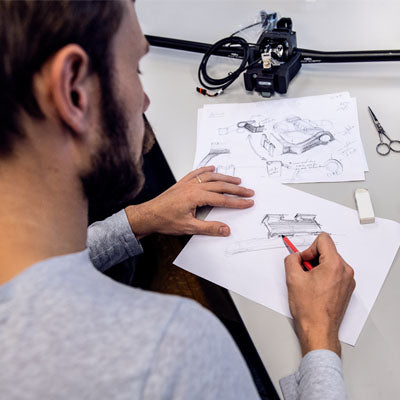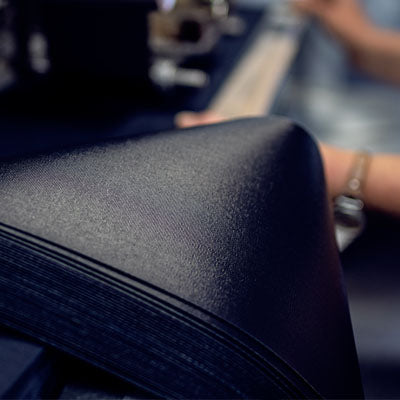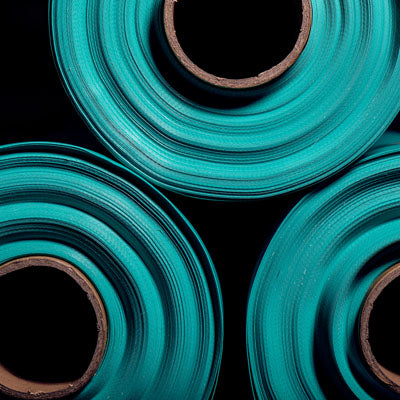MADE IN GERMANY
Since ORTLIEB’s foundation in 1982 we produced in Germany and we will maintain our German production site also for the future. More than 70% of the materials used for our products derive from Germany. This is beneficial for humans and the environment, since Germany’s social and environmental standards are quite high in comparison to international standards. Our direct, trustworthy and long term relations to our suppliers are advantageous for us.
90% of all processes take place “in-house” in the ORTLIEB company in Heilsbronn. This allows us to continuously optimize our quality manufacturing and to guarantee that each production step is as environmentally friendly as possible.
OUR APPROACH
As one of the first outdoor equipment companies we remain committed to a holistic, ecological world view. It is especially important to us to take a considerate and respectful approach to nature. This is why we are continuously implementing ways to minimise our carbon footprint, optimizing our eco-balance and at the same time producing highly functional long-lived products with superior customer benefits. Our “Made in Germany” production, our continuously improving efficiency is beneficial in reaching this target. Our production processes are also geared to conservation of resources taking into consideration the product entire life time including recycling.In addition, we are investing in renewable energies: 100 percent of our electricity consumption is generated from renewable energies, one third from our own photovoltaic plant on the company roof. The CO2 emissions resulting from our gas consumption are 100 % compensated. We are committed to long-term trustful business co-operations with our suppliers in Germany, Europe or throughout the world. Our requirements regarding our suppliers with respect to sustainability and responsibility are defined in our Code of Conduct for Suppliers.
OUR CO2 FOOTPRINT
The climate change caused by humans is today one of the main global threats for all of us. ORTLIEB is aware of its responsibility, and we want to contribute to protecting the environment. Our advantage: most of our products help our customers managing their commute by bicycle or on foot thus protecting the environment.
As producers we want and have to reduce our environmentally damaging emissions as much as possible. In the beginning of 2015 we have set up the first ORTLIEB climate balance (2011-2013) in cooperation with B.A.U.M. Consult that we are continuously updating. Currently we have data available up to the beginning of the year 2018. It assesses all major flows of materials, energies and emissions. This forms a basis for systematically finding and realizing the right measures for effectively reducing our impact on the climate.
OUR WATER CONSUMPTION
In comparison to our CO2 footprint, our water footprint is considerably lower, because we hardly use any water in our production. However, considerate and economic use of water is extremely important to us. Despite increasing staff and production we managed to maintain our fresh water consumption at the same level since 2012.
WASTE MANAGEMENT
Waste caused in the company and in our production is separated, recycled and disposed of according to legal regulations. ORTLIEB’s first climate balance in 2014 also considered wastes of so-called scope 3 CO2 emissions (indirect follow-up emissions). 2% of total emissions caused by us are due to waste and its disposal, in particular synthetics from our production and cardboard boxes. Despite an increase in production between 2011 and 2015 there was only a slight deviation of the amount of waste in absolute figures. The climate balance – with regards to waste – per produced piece was improved by this fact from 2011 to 2015.
The ecological weak spot of Ortlieb products is the disposal of PVC plastic waste from production and of worn out/old products. Therefore, a long product life time and the ease of performing repairs on Ortlieb products are extremely important. Normally, our products consist of various different polymers which can be separated from each other only by using large amounts of water and energy (negative eco balance). Disposal of PVC is not allowed in Germany, since small amounts of plasticizers may get into the ground water. Modern incineration plants and smart emission control systems are essential for preventing the release of toxic dioxins caused by burning PVC waste in incineration plants.
For these reasons we will allow all consumers the redemption of disused products to the end of 2017 in order to ensure professional disposal.





